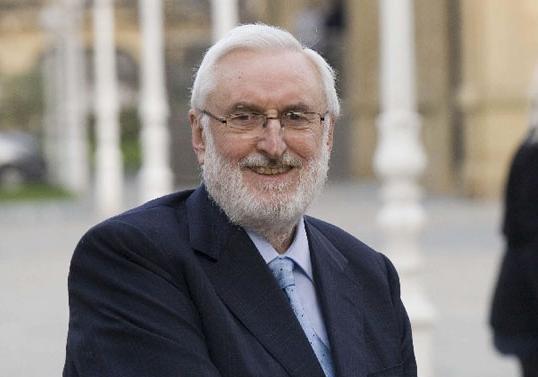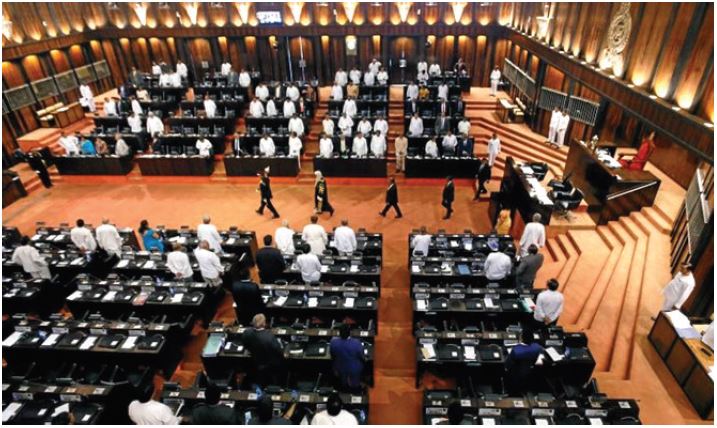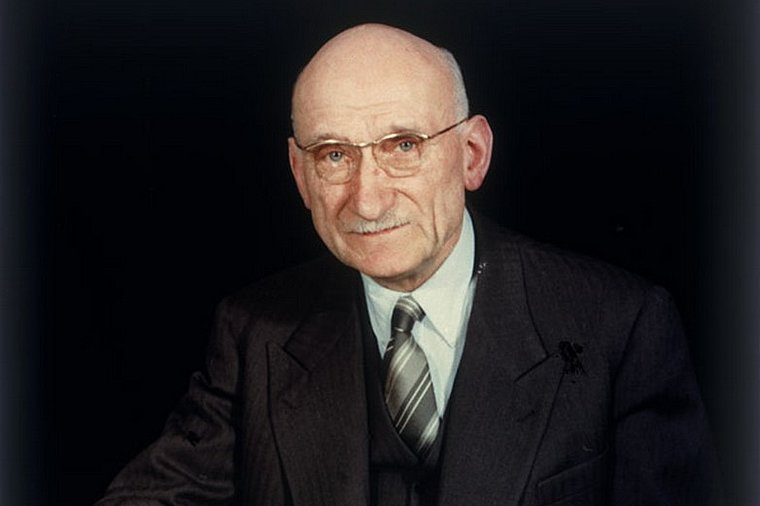What are we talking about when we talk about populism?
Populism is on everyone’s lips. For better or for worse. Some people hate them. Others, although they don’t like the term, applaud its pretensions. Populism has several components. In these lines I only reflect on the opposition of populisms to what they call elites, who would only seek their own profit, in front of the people, good by nature, subjugated by them.
It is difficult to reach an agreement when it comes to defining and delimiting the term populism or populist politics, as the term terrorism was not defined in its day in the international space, allow me to recall. Although, generally speaking, the term populism, or rather populisms, are associated with the extreme right, populisms, with their varied characteristics, are not limited to formations on the extreme right. They are parties or movements that reject traditional parties, incense the people, reject the elites, demonize their enemies, many whip Europe and exalt the nation-state, reject or are very reluctant with immigrants, denounce the “Islamist” threat, advance simplistic proposals, play demagogy, with charismatic leaders with direct political styles and very striking modes of communication. They do not prosper only in countries in recession, subject to austerity, marked by a high unemployment rate, the generalization of precariousness and the widening of inequalities. Thus, they are strongly implanted in Germany, Austria, Sweden, Holland, Finland… They do not exist only in the countries of the European Union, because they have a strong presence in prosperous countries such as Switzerland, Norway and in other rich places in the world, such as the United States. Populisms cannot be interpreted only as a threat to liberal and representative democracy, or, on the contrary, not only as bearers of the hope of a profound renewal of democracy.
There are right-wing and left-wing populists who do not even renounce the term populist and have to be labelled as such. I bring here, by way of example, how populism was defined by the renowned left-wing economist Thomas Piketty in an article entitled “Long Live Populism”: “Populism is nothing but a confused but legitimate response to the feeling of abandonment of the working classes of the developed countries in the face of growing inequalities. It is necessary to rely on the most internationalist populist elements, and therefore on the radical left, embodied here and there by Podemos, Syriza, Sanders or Mélenchon, regardless of their limits, to construct precise answers to these challenges, otherwise the nationalist and xenophobic retreat will end up taking everything ahead” (“Le Monde” 14/06/2017). Closer to us I also remember that Abascal, referring to Casado and PP, affirmed: “you are the past and the tantrum, we are the future and the hope” (In a tuit on 30/04/19).
2. “Peoplecracy”: the people against the elites. Commenting on an Italian book.
In fact, we are living the considerable phenomenon of anti-politics that floods European society, a phenomenon that involves two great dimensions, one of rejection of all politics, the other of aspiration to another democracy. Populisms are at the crossroads of these two tendencies, and they determine the evolution of the democratic order with its irresistible conquering dynamism. Today’s representative democracy is changing due to the acceleration of globalisation, the effects of European integration, the reduction of governments’ room for manoeuvre in the face of financial capitalism, the rise of technocratic power and the development of current social networks. All these elements contribute, among others, to the emergence of populisms often associated with state nationalisms and xenophobia, and perhaps open a new era, which two Italian authors, Ilvo Diamanti, Marc Lazar propose to call “pueblocracia”. They published in 2018, in Italy, the book “Popolocrazia: La metamorfosi delle nostre democrazie”, with an overwhelming success, so much so that it has already been published, in France in 2019 with a similar title “Peuplecracie…” that I translate, obviously, by “Pueblocracia”. I very much doubt that the book will be published in Spain because, to a large extent, it studies the different evolution of democracies in France and Italy, although under the umbrella of what they call “Pueblocracia”, they understand that it can be transferred to a large part of Europe. I paraphrase in this text some of their central ideas.
Populists refer to the sovereign people whom they idolize and sanctify. Moreover, “the united people will never be defeated. At the same time, they attack the political representatives and institutional forms that, through political parties and freely elected parliaments, represent, precisely, popular sovereignty. But “the people are systematically valued as a homogeneous entity, bearer of the truth and are considered to be fundamentally good, especially in opposition to the elites, also supposedly homogeneous, always denigrated, disqualified, detested, hated. This antagonism, the virtuous people against their corrupt representatives, has an explosive effect (….) amplified by the resonance box of the media, mainly television, Internet and social networks. This gives a new vigour and a new dimension to the old idea of direct democracy. Even more so when the political parties, which functioned as mediators between society and government, are extremely weak and very often rejected, while the political cultures they have forged are in an advanced state of deliquescence.
New technologies are triumphing because they allow their users to intervene permanently in public life, to anonymously set themselves up as untouchable experts on all issues, including the most complex ones, to criticize politicians, to mock them. Or denigrate them. As a result, they play a decisive role in reviving the myth of “true democracy” shaped by “the true people”. And that, at a vertiginous speed that traditional politics has enormous difficulties to integrate, to subsist, even to adapt to the new times of the culture of the image, of anonymity, of the twits, of the emoticons, of the enthronement of football and of the weekend, of the low cost trips, etc., etc., etc. It is the political challenge of the democracy of the present.
Finally, I expect the intelligence and honesty of the reader not to make me say what I have not said, nor defend: that the solution is in the government of the elites, who have already proved that, without control, are corrupted. Governance is much more complicated. Paper and computer keys hold everything. Not reality. And if on 26 May populism wins in Europe, I fear for the future of Europe and, with it, the future of the whole of Spain.
3. Europe’s blindness and suicide
We are accustomed to seeing a world map in which the center is located in the Atlantic Ocean with Europe, just to its right, and the U.S. on the left. I just checked it in the Google Maps images, after typing “mapamundi”. Totally to the right of the map appears China, Vietnam, Korea, Japan etc., and the eastern tip of Russia. Therefore, in our usual language we speak of the Middle East to refer to Turkey, Egypt, Iran, Iraq, Israel, Jordan, Syria, etc., and the Far East to East Asia. This world map is an enormous deception. At present, the centre of the world is located in the Pacific Ocean with the USA in the east, China in the west, leaving Europe on the edges of the map and Spain, now yes, the Finis Terrae of the world. And Euskadi is, for the most part, in Spain and Spain in Europe.
We have lost the north and we go to collective suicide, because we do not want to see “the world that is coming to us” (title of a good book by Josep Piqué, 2018, looking to the future), as we are guided by the emotional and irrational and we have set aside rational deliberation, with data and reflections. The European elections at the end of May (the 26th in Spain) will be a test: either they will lead us to a relief (another relief like that of the night of 28 April) or we will take a step further in the disappearance of Europe as a social, economic and political entity in order to become a geriatric hospital that hosts, of course, one of the best cultural museums on the planet. In reality, all of Europe will be a great museum, starting with the autochthonous Europeans who will be attended by those who cross the “puddle” looking for work, because they speak our language and by the “barbarians” of the south of the Rio Grande that separates us from Africa, the Mediterranean Sea, whose population will be multiplied by three. But it will be a first moment. For with their dynamism, youth and desire to prosper, they will soon take over the reins of the new Europe and the natives will become the Indian reserve of the old Europe.
Well, in today’s opulent Europe, populist parties, although very different from each other, reap electoral successes such as the “National regroupment” (formerly National Front) of Le Pen and the “Unsubordinated France”, the Freedom Party in Austria, Syriza in Greece, Podemos and VOX in Spain, EHBildu in Euskadi”, Alternative for Germany (AfD), the UK Independence Party (UKIP), the Freedom Party in the Netherlands, the Swedish Democrats, the Fidesz-Hungarian Civic Union, “Law and Justice” in Poland, the “True Finns in Finland etc.”., etc. Some even come to power: in Italy, Hungary, Poland, Czech Republic, Slovakia, Belgium, Austria etc.
European politics is filling up with populist leaders: Beppe Grillo, Marine Le Pen, Jean-Luc Melenchon, Heinz-Christian Strache, Alexis Tsipras, Pablo Iglesias, Santiago Abascal, Arnaldo Otegi, Frauke Petry, Nigel Farage, Geert Wilders and Jimmie Akesson, Viktor Orbán, Jarosław, Matteo Salvini and Viktor Orbán…. And the few pro-European leaders are losing steam. Macron who dreams of European sovereignty is under minimums, and not only because of the yellow vests, while Merkel has lost the chancellery by being the only leader (leader, yes) who saved the honour of a Europe, without shame, incapable of welcoming a handful of immigrants into their countries.
If I include Podemos and EH Bildu among the populist parties, even Podemos and EH Bildu of today, it is because they never tire of incensing the people and denigrating the elites. But where are the elites? What, who do we think of when we refer to the elites? The “elites” and the “people” do not form two sociologically homogeneous or necessarily opposed categories. This approach is a fat brush, it is a demagogic approach that does not clarify anything and obscures everything. Moreover, it prevents us from thinking rigorously. Reality is more complex.
4. Remembering with Rob Riemen and Albert Camus, the value of values
I remember here the forecast of the eternal return of fascism that Rob Riemen so clairvoyantly showed us (“To combat this era. Consideraciones urgentes sobre fascismo y humanismo”, in its Spanish edition. Taurus 2018) in an unheard plea, I want to believe that out of ignorance, intellectual vagrancy, short-sightedness and convenience to continue talking about the unimportant and the politically correct.
Riemen maintains that, in a society where the man-mass dominates (he uses Ortega’s text ‘The rebellion of the masses’), the dominant culture can be no other than the culture he calls ‘kitsch’. It is characterised by the fact that noble values, spiritual values, are abandoned to the detriment of the immediate satisfaction of material cravings. The culture of kitsch is inscribed in the supreme value of the self, of immediate satisfaction, of the drive of the instant. For its part, politics becomes a kind of ‘kermesse’ (who won yesterday’s debate?) where the point is to attract votes. The kitsch, Riemen will conclude, “is comparable to cosmetics. The makeup seeks to seduce, but also to disguise. Kitsch’ serves to hide an immense spiritual void. The man-mass, despite his conceit, is aware of his inner emptiness and lives in the cult of resentment. Is it possible not to see it if you consult the anonymous comments of the digital world?
This is how fascism was born. The error (the phew of relief of many on the night of April 28) would be in comparing the current fascism with the final fascism of the Nazi, Mussolini, Stalinist, Maoist or Francoist world, when we would have to compare it with that of its beginnings. The fascism of Vox is in its beginnings and has already dragged part of the PP and Citizens. And, what is more serious, it has behind it more than two million citizens. Today, as always, Riemen will write, “fascism is the consequence of the attitude of political parties that have renounced their ideals, of intellectuals that cultivate accommodating nihilism (there is no hierarchy of values), of universities that do not deserve such a name, of the greed of the business world, of the media that are used to brutalize the public instead of seeking the development of its critical spirit.
It is worth recalling Albert Camus’ question at the end of the Second World War, in a meeting with Sartre, Koestler and Malraux, at the latter’s house: “Don’t you think we are all responsible for this lack of values? And if we publicly confess that we have made a mistake, that there are moral values, and that from now on we will do what is necessary to found and illustrate them?”. I think your question is still valid today. The question of the values we prioritise is crucial.
This is what, in the face of the momentous European election of 26 May, reminds us of “Barandiaran Kristau Alkartea”, the Basque federation of the international organisation Pax Romana- International Movement of Catholic Intellectuals, on the basis of the text of the European Pastoral Platform “At the service of Europe”, Catholic intellectuals express their concern for the emergence and strengthening of xenophobic currents in Europe, as well as for the weakening of solidarity, particularly with the “migration crisis”.
They defend a Europe of fraternity and hope that the election of our representatives in the European Parliament will revive the European project, placing the person at its centre and not treating them only as consumers or beneficiaries of their policies. For what they call “the citizens to vote with lucidity and courage in favour of a European project that is constructed on the basis of the following values”, which I summarize thus:
A Europe of peace, a Europe of freedom, a Europe that unites people in diversity, a welcoming, inclusive and social Europe, a modern, proactive, entrepreneurial and innovative Europe, a decidedly ecological Europe, a Europe oriented towards the future. They conclude their manifesto with these words: This is the Europe we want and need, and it is up to us to support it and make it possible through our vote’. You can count on mine. And yours?






Leave A Comment
You must be logged in to post a comment.